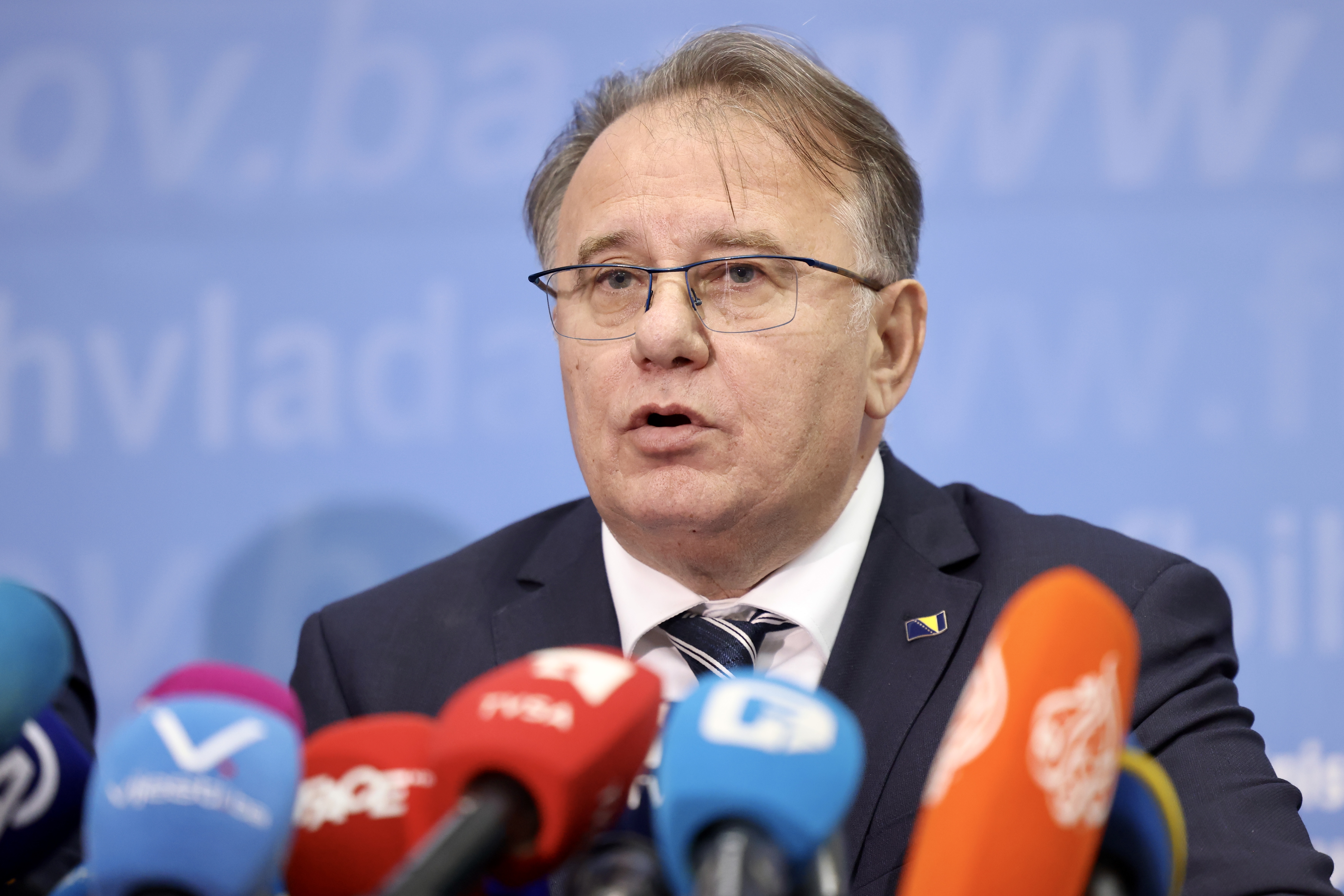
The Prime Minister of the Federation of Bosnia and Herzegovina (FBiH), Nermin Niksic, along with his deputies Vojin Mijatovic and Toni Kraljevic, held a press conference on Wednesday to discuss the government’s decision to raise the minimum wage to 1,000 Bosnian marks (some €500).
Niksic opened the conference by highlighting the strong financial position of the Federation entity, stating, "The fact that we haven’t revised the budget and that we planned well contradicts claims that FBiH is relying on debt. Interestingly, since the decision was made, those claims have disappeared."
He acknowledged the varied reactions to the decision, noting, "While some employers and analysts oppose the increase, many workers and unions support it. However, there are workers who have expressed dissatisfaction and plan to protest outside the government building."
Niksic addressed accusations that the decision would lead to increased contributions to the budget, presenting figures from the Tax Administration. "The decision will bring in around 460 million Bosnian marks (some €230 million) in contributions, including 256 million marks (approx. €25 million) for pensions, 183 million marks (some €91 million) for health insurance, and 20 million (around €10 million) for the Solidarity Fund. Another 22 million marks (some €11 million) will go to the Employment Bureau."
He emphasized that these funds are strictly allocated for specific purposes, such as pensions, and cannot be used for other expenditures.
The Prime Minister criticized some employers for not utilizing opportunities to provide non-taxable payments of up to 400 Bosnian marks (around €200) per month to workers, calling their justifications "absurd."
"Workers have essentially become modern-day slaves," he remarked, pointing out that employers increased prices to protect themselves from inflation and achieved record profits, while wages remained stagnant.
Niksic revealed that the FBiH recorded a 40% increase in private-sector profits over the past three years, amounting to 5.4 billion marks (some €2.7 billion) in 2023, while the minimum wage grew by only 14%.
He explained that the government considered several options before finalizing the decision. One proposal was to set the minimum wage at 700 marks (around €350), with additional compensation for transportation and bonuses to bring total earnings to 1,200 marks (some 600). Another proposal set the minimum at 800 marks (around 400) with similar provisions. Both were rejected by employers.
Ultimately, the government decided on a minimum wage of 1,000 marks (some €500), with plans to implement fiscalization reforms to ensure transparency. Niksic stressed that the non-taxable portion of wages remains unchanged and can still be provided under existing laws and collective agreements.
He dismissed concerns that the decision would harm workers as unfounded, adding that the government will introduce incentives for small businesses and entrepreneurs to offset any financial burden.
Niksic warned against potential abuses, stating that the government will intensify labour inspections and impose strict penalties on employers who attempt to terminate workers and rehire them under informal arrangements. He urged workers facing such pressures to report violations, promising anonymity and full protection.
He also presented data showing that 12,313 workers currently earn less than 619 marks (some €319), while 93,990 workers earn between 620 and 700 (€320 - €350). Another 45,653 workers earn between 800 and 999 marks (€400 - €499).
"It’s a blatant lie that over 180,000 workers are registered at the minimum wage level," Niksic concluded, criticizing employers for misleading the public.
Kakvo je tvoje mišljenje o ovome?
Učestvuj u diskusiji ili pročitaj komentare





 Srbija
Srbija
 Hrvatska
Hrvatska
 Slovenija
Slovenija



























































